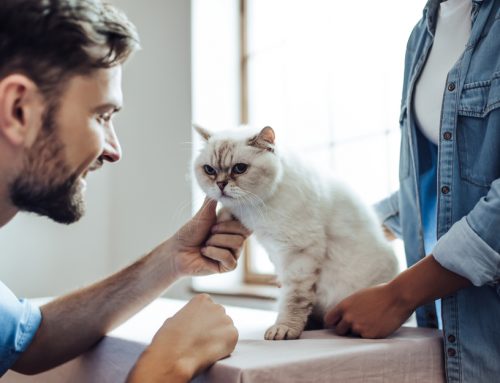 One of life’s realities is that the older you get, the more help you need. If you’re lucky, you have people to lean on during your golden years and loved ones who fill your days with happiness and meaning.
One of life’s realities is that the older you get, the more help you need. If you’re lucky, you have people to lean on during your golden years and loved ones who fill your days with happiness and meaning.
The same goes for our animal companions who are generally considered “senior” after age 7. Similar to humans, pets rarely make it through their geriatric years without intervention. Although many senior pets require specific care and support, modern veterinary advances and active owner involvement can make senior pet care a gratifying, worthwhile endeavor.
Increased Vigilance
If you’ve raised your pet since he or she was a puppy or kitten, you’re probably well-versed in the importance of wellness care. Younger animals should be seen for annual exams, but because early detection is so critical for age-related conditions, senior pets should be seen twice a year.
The Big Picture
Twice yearly exams allow greater insight into your pet’s overall health. If results from various diagnostics reveal an illness or disease, we can quickly establish an effective treatment plan. Tests for senior pets may include:
- Blood panels
- Screenings for diabetes, liver, or kidney disease
- Thyroid testing
- Abdominal x-rays or ultrasound
Catching a disease early may cut down on the cost of treatment later, and it may keep your senior pet active and pain-free for a longer period of time.
Changes, Changes
Over time, you may see certain behavioral, metabolic, or physical changes in your senior pet. Please don’t hesitate to call us with any questions or concerns. Your senior pet may require emergency care if you notice:
- Vomiting or diarrhea
- Pale coloration in the gums
- Rapid breathing or pulse
- Weak pulse
- Cold or hot body temperature
Senior Pet Care and Conditions
You may need to adjust your senior pet’s diet since nutritional needs change with age. Obesity is also a common problem among senior pets, and aside from the possibility of developing diabetes, being overweight can lead to a lack of mobility or depression.
Likewise, a proactive approach to your senior pet’s dental care and exercise routines may need to be fine-tuned.
There are many age-related conditions that commonly affect senior pets, such as:
- Arthritis or joint problems
- Thyroid or adrenal problems
- Skin diseases
- Allergies
- Diabetes
- Eye issues
- Renal or kidney disease
- Accidents or injuries
- Periodontal disease
- Cancer
- Liver disease
- Heart disease
Regular visits can detect – and even prevent – the occurrence of disease, and our senior pet care strategies aim to support your pet’s health well into the golden years.
Proper Management
Our team will work closely with you to manage any problems in your senior pet and, if necessary, can offer choices in orthopedic care as well as pain management. Please let us know if you have any questions about senior pet care or the prevention, detection, and treatment of age-related conditions.






